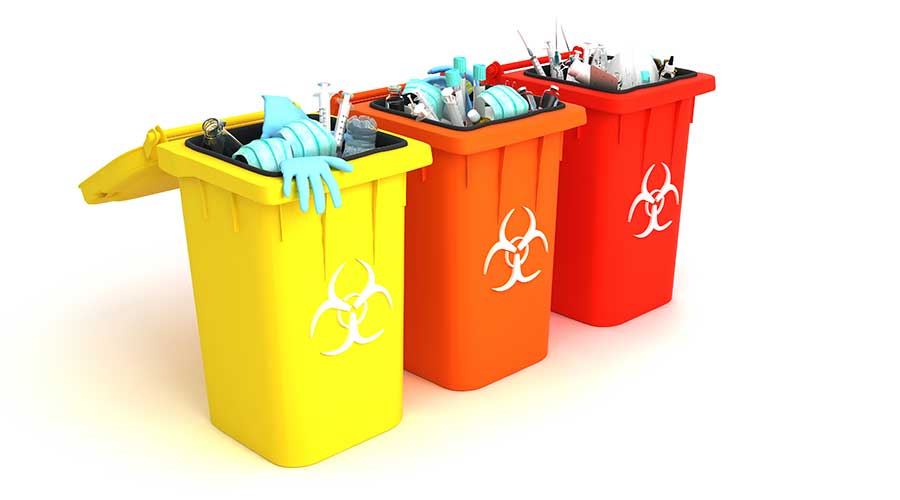As hospitals prepare for further severe weather, preparedness plans should include technology that allows them to safely treat infectious regulated medical waste (RMW) on-site, says Healthcare Coalition for Emergency Preparedness. Should you provide a link to this, since it’s the focus of the article?
A recent Harvard study investigating the flooding risk to hospitals finds that even relatively weak storms pose a serious flood risk to hospitals along the coast. This study finds that even if hospital buildings might not be flooded, the roads around them might be, restricting or preventing access to care. Such conditions have often been a major challenge even after storms have passed.
Hospitals that outsource RMW treatment services are most vulnerable when the transportation infrastructure is compromised due to flooding and debris. By deploying on-site RMW equipment at hospitals and other healthcare facilities across the country, facilities can see an increase in sustainability, emergency preparedness, decreased emissions from taking trucks off the road, and lower operating costs.
In a report to Congress in 2012, the U.S. Department of Veterans Affairs (VA) provided data that compared cost estimates between sterilizing infectious medical waste on-site versus hauling waste offsite for treatment. The VA found that on-site treatment costs one-half as much as hauling waste off-site to treatment, providing significant savings for most VA medical centers and most private and public hospitals.
Around 600 hospitals in America have on-site waste sterilization systems in daily use to treat regulated medical waste and Category A infectious substances. These existing and affordable technologies can kill Category A pathogens as suggested by the CDC and all other RMW such that all infected items become sterile and safe for healthcare workers, patients and the public.

 Healthcare and Resilience: A Pledge for Change
Healthcare and Resilience: A Pledge for Change Texas Health Resources Announces New Hospital for North McKinney
Texas Health Resources Announces New Hospital for North McKinney Cedar Point Health Falls Victim to Data Breach
Cedar Point Health Falls Victim to Data Breach Fire Protection in Healthcare: Why Active and Passive Systems Must Work as One
Fire Protection in Healthcare: Why Active and Passive Systems Must Work as One Cleveland Clinic Hits Key Milestones for Palm Beach County Expansion
Cleveland Clinic Hits Key Milestones for Palm Beach County Expansion